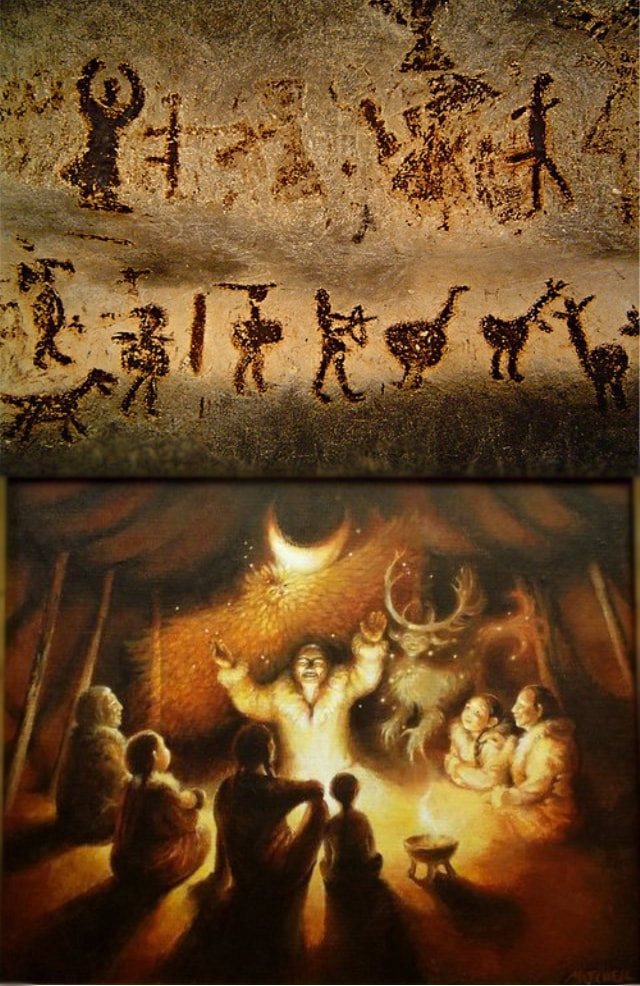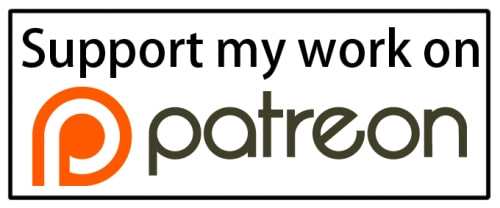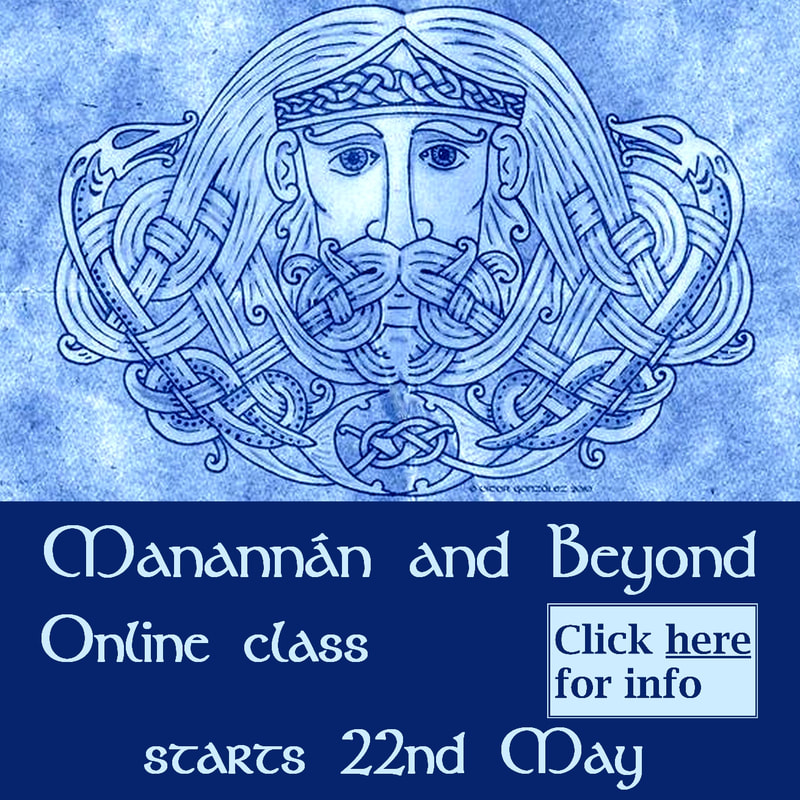| I'm assuming that most people will be reading myths from a book. However, we must learn to listen to them, to give them our deep attention. There are definite advantages to hearing someone tell stories from Celtic mythology in person, especially if the speaker is pronouncing the names in their native language. (Wrong pronunciations can be hard to unlearn so it's great to hear correct ones early on.) There is an immediacy and a shared experience with live storytelling that no other method has. Listening to recordings can also be good, but it can be harder to keep your full attention on a recording. However, an advantage that both books and recordings have, is that you can go back over things whenever you want to. The "listening" I'm talking about, though, is not about reading vs hearing, but about how we receive and respond to the story once we encounter it. |
As you read mythology you will probably meet ideas that cause a strong response. Your response might be awe or aversion, an epiphany or curiosity. A good storyteller knows these points in a tale, and will pause, perhaps even repeat a phrase, or explain something. When we read myth, we act as both teller and listener, so please show honour to both yourself and the story by sitting for a moment to feel or think, or even going back over something that stands out.
Some people will tell you to read various books about mythology "for starters". While they often suggest very good books, I feel that you should let the myths themselves have their say first. Keep an open mind. The depth you find on your own is real, too. It can be both magical and fragile. Don't let a more scholarly interpretation crush the wisdom you've found. Maybe your wisdom will evolve, and maybe the scholars' wisdom is not the only wisdom. Later, you may want to read commentary on the myths that interest you.
| Celtic mythology is hard to pin down. It's messy, fragmented and mysterious. You have to work for what you get out of it. Talking about mythology is not the same thing as listening to it. If you do listen, you'll find that somehow the gods have woven themselves into the strands of it in such a way that if you look for them there, or you look for wisdom or 'medicine' there, they will meet you halfway. They will meet you with things that are relevant to you right now. | "In this tradition a story is 'holy,' and it is used as medicine ... The story is not told to lift you up, to make you feel better, or to entertain you, although all those things can be true. The story is meant to take the spirit into a descent to find something that is lost or missing and to bring it back to consciousness again." |


 RSS Feed
RSS Feed




